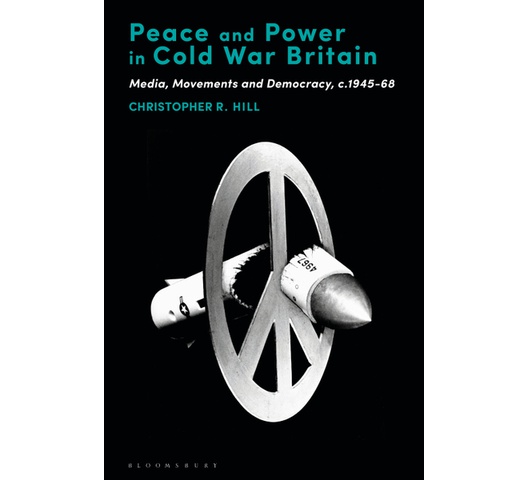
Peace and Power in Cold War Britain
This is an eBook that you can download electronically.
Peace and Power in Cold War Britain explores the ban the bomb and anti-Vietnam War movements from the perspective of media history, focusing in particular on the relationship between radicalism and the rise of television. In doing so, it addresses two questions, both of which seem to recur with each major breakthrough in communications technology: what do advances in communications media mean for democratic participation in politics and how do distinctive types of media condition the very nature of that participation itself?
In answering these, the book views the ban the bomb and anti-Vietnam War movements in relation to communication power and media discourse. It highlights how these movements intersected with parts of public life that were being transformed by television themselves, shaping struggles for social change among activists and public intellectuals on the streets, in the Labour Party and in the law courts.
The significance of this relationship between media and movements was complex and wide-ranging. Christopher R. Hill demonstrates that it contributed to the enrichment of democracy in Cold War Britain, with radicals serving to innovate and pioneer creative forms of political expression from both in and outside of media organisations. However, the movements increasingly succumbed to news coverage and values that revolved around human interest and violence, feeding into the revolutionary spectacle of 1968 and the turn towards identity politics.
SKU: 9781474279352
Format: EPUB
In answering these, the book views the ban the bomb and anti-Vietnam War movements in relation to communication power and media discourse. It highlights how these movements intersected with parts of public life that were being transformed by television themselves, shaping struggles for social change among activists and public intellectuals on the streets, in the Labour Party and in the law courts.
The significance of this relationship between media and movements was complex and wide-ranging. Christopher R. Hill demonstrates that it contributed to the enrichment of democracy in Cold War Britain, with radicals serving to innovate and pioneer creative forms of political expression from both in and outside of media organisations. However, the movements increasingly succumbed to news coverage and values that revolved around human interest and violence, feeding into the revolutionary spectacle of 1968 and the turn towards identity politics.
KES 7,467

International delivery
Free click & collect
When you buy an ebook from TBC, you will be given a code to download your
purchase from our ebook partner Snapplify. After you have redeemed the code and
associated it with a Snapplify account, you'll need to download the Snapplify Reader
to read your ebooks. The free Snapplify Reader app works across iOS, Android,
Chrome OS, Windows and macOS; on tablets and mobile devices, as well as on
desktop PCs and Apple Macs.
You're currently browsing Text Book Centre's digital books site. To browse our range of physical books as well as a wide selection of stationery, art supplies, electronics and more, visit our main site at textbookcentre.com!
Reviews
This product does not have any reviews yet.
Add your review
